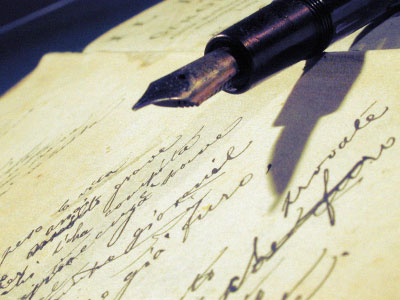You have no items in your cart. Want to get some nice things?
Go shopping
Why Hazlitt? He is, quite simply, the best. What does it mean to be a great essayist? It means, every time you put pen to paper, you give the reader a compelling reason to keep reading – and that means having an intimate knowledge of life, of love, of the world, and the ability to pass comment on those things in a way that is not only true but wise. And that ability is innate, not learned. It’s like playing great jazz – you either have it or you don’t. Hazlitt had it in spades.
I will never forget my first experience of his prose. I was in my early twenties and had idly taken a copy of The Spirit of the Age (1825) down from the library shelves. I knew it was said to be his greatest work, and was prepared to be impressed, but had never before read anything in which style and content were so beautifully wedded. Hazlitt’s style is like no one else’s. He had the power to endow his prose with an almost tangible quality, as if the turns of phrase, sharpness of the wit, or penetration of his senses could transform an abstract quantity into something concrete. I was overpowered, intoxicated, light-headed, by it. It is the only prose I know which seems to snap, crackle and pop. I kept reading, and am still doing so.
No one saw and described the Romantic generation with such unforgiving clarity. The acuity of Hazlitt’s vision probably has something to do with the fact that he had either known or observed most of those he writes about in The Spirit of the Age at first hand. The book opens with a portrait of Jeremy Bentham, the Utilitarian philosopher whose mummified remains are on display at UCL today. Besides being a philosopher, Bentham was Hazlitt’s landlord. So far as we know, they never met, but Hazlitt must often have observed Bentham walking in his back garden (which adjoined that of the house rented by Hazlitt), and which had, more than a century before, been the place where Milton dictated Paradise Lost to his long-suffering daughters.
That was why, when Bentham and his disciples decided to pave over the garden so it could be the site of a school founded on Utilitarian principles, Hazlitt objected, and even tried to stop it. All that is worth remembering: Selected Essays of William Hazlitt contains two essays about Utilitarianism, and both reveal the extent to which Hazlitt detested the doctrine. That was why he could write of Bentham, in The Spirit of the Age: ‘He has a great contempt for out-of-door prospects, for green fields and trees, and is for referring everything to Utility…. It is, indeed, the great fault of this able and extraordinary man, that he has concentrated his faculties and feelings too entirely on one subject and pursuit, and has not “looked enough abroad into universality”.’
Nearly two centuries after their first appearance, Hazlitt’s judgements on the failings and shortcomings of the remarkable people depicted in The Spirit of the Age continue to illuminate them as human beings. It was the kind of writing not calculated to cement long-standing friendships. Francis Jeffrey, who had commissioned Hazlitt as a contributor to the Edinburgh Review in earlier years, disliked the essay that described him as ‘satisfied with his own conclusions’, and had no more to do with him. Wordsworth, who had been Hazlitt’s friend in the early 1800s, regarded him as a ‘miscreant’, ‘not a proper person to be admitted into respectable society, being the most perverse and malevolent creature that ill luck has ever thrown in my way’. Hazlitt always regarded Coleridge as the great intellectual of the age, but condemned his addiction to opium and declared, ‘everlasting inconsequentiality marks all that he attempts’. Coleridge was so horrified by this he never spoke to Hazlitt again and wrote self-pitying letters about him to whoever would read them.
What does this tell us? That one reason why Hazlitt is so readable is he is determined to speak the truth about everything, even when to do so was not in his best interests. For him, the truth was paramount. If a person had fallen short of their promise, be it friend or foe, he said so regardless of the consequences. And he could show such clarity of vision even when it told against himself. In 1822, when he was in his early forties, he described in his notebooks his own insane infatuation with a 19-year-old girl with a clinical eye that has prompted modern critics to condemn him for failing to conform to contemporary standards of political correctness. Against the evidence, they have gone so far as to brand him a rapist and to lobby for his removal from the curriculum.
But Hazlitt was never a rapist, and innocent of sexual harassment. He was, however, guilty of sexual obsession, and that is something he documented in painful, ungenerous detail in his notebooks and letters to close friends. It was one thing to write of these things, quite another to collect them together and publish them as a book, Liber Amoris, as he did in 1823. Why do it? Because he was no hypocrite. If he had the right to pass judgement on others, he was obliged to pass judgement on himself, and if Liber Amoris proves that, for a while, he was literally insane with passion – so insane he would buttonhole strangers in the street and relate to them the intimate details – that fulfilled his belief in the absolute truth, whether or not it did his reputation harm. (In the long term, it destroyed his name, so that it could not be published on the title-pages of his books, and he would remain a byword for sexual depravity throughout the Victorian period.)
We measure the worth of essayists by the truthfulness with which they speak, as well as by their percipience. We love them if they make us laugh, possess wisdom, and can rise above their prejudices. Hazlitt scores highly on all counts, and remains the greatest of them all. I defy anyone to open All that is worth remembering: Selected Essays of William Hazlitt at random, and not be seduced by him.

About Duncan WU
Duncan has authored or edited a number of books, principally in the areas of Romantic Studies and Contemporary British Drama. His writing has featured in The Observer, The Daily Telegraph, The Guardian, The Independent, the TLS, and Times Higher Education. He is Vice-Chairman of The Charles Lamb Society and The Keats-Shelley Memorial Association, a founder member and former Chairman of The Hazlitt Society, and a Fellow of the Royal Society of Arts.





So now it is a great way for us all.